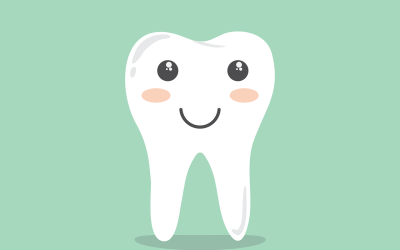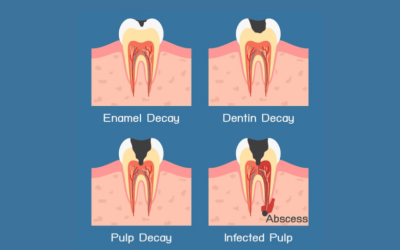So you’re feeling some discomfort and notice a tender bump on your skin. Is it an abscess or just an infection? Understanding the difference can help determine the best course of action and ensure proper treatment. In this article, we’ll take a closer look at abscesses and infections, highlighting their key characteristics and offering insights into how to identify them. By the end, you’ll have a clearer understanding of these two conditions, empowering you to take the necessary steps for effective healing.
Abscess
Abscesses are a common occurrence in the human body, and they can be quite uncomfortable. An abscess is essentially a collection of pus that forms within tissues, organs, or even body cavities. Pus is a thick, yellowish fluid composed of dead cells, bacteria, and other debris. This buildup of pus creates a swollen, painful, and often red lump. Abscesses can occur in various parts of the body, including the skin, teeth, tonsils, and even internal organs like the liver or brain.
Causes
Abscesses are primarily caused by bacterial infections. When harmful bacteria enter the body, whether through a wound, a compromised immune system, or even poor hygiene, they can multiply and create an infection. As the immune system responds to the infection, it sends white blood cells to fight off the bacteria, resulting in inflammation. This inflammatory response can cause the formation of an abscess as the body attempts to contain the infection and prevent it from spreading further.
Symptoms
The symptoms of an abscess can vary depending on its location. However, some common signs include localized pain, swelling, warmth, redness, and tenderness. The affected area may also feel firm or soft to the touch, and in some cases, you may even notice the presence of a visible lump or a fluctuant area filled with pus. If the abscess is located internally, symptoms such as fever, chills, fatigue, and a general feeling of illness may arise.
Diagnosis
To diagnose an abscess, a healthcare professional will usually perform a physical examination and inquire about your symptoms. They may gently palpate the affected area to assess the extent of the swelling and tenderness. In some cases, they might even use imaging techniques like ultrasound, X-rays, or CT scans to get a better view of the abscess and determine its size and location. If necessary, your doctor may also collect a sample of the pus for laboratory testing to identify the specific bacteria causing the infection.
Treatment
The treatment of an abscess typically involves draining the pus and administering antibiotics to eliminate the bacterial infection. Drainage can be achieved through various methods, depending on the size and location of the abscess. Small abscesses on the skin’s surface may be opened and drained with a sterile needle or scalpel, while larger or deeper abscesses might require a minor surgical procedure. Once the pus is drained, antibiotics are often prescribed to ensure complete eradication of the infection and to reduce the risk of recurrence.
Complications
While most abscesses can be effectively treated, complications may arise if the condition is left untreated or if the infection becomes severe. If the abscess is not drained promptly, it may continue to grow and spread, causing nearby tissues to become infected as well. In certain cases, the infection can enter the bloodstream, leading to a condition called sepsis, which can be life-threatening. Additionally, abscesses in critical organs or delicate areas like the brain can result in serious complications and permanent damage if not addressed promptly.
Prevention
Preventing abscesses largely involves practicing good hygiene and taking appropriate measures to reduce the risk of infections. It is crucial to clean any wounds or cuts thoroughly with mild soap and water, apply sterilizing agents such as hydrogen peroxide or iodine, and keep them covered with a clean bandage. Regularly washing your hands with soap and water, especially before handling food or touching open wounds, can also help prevent the spread of bacteria. Maintaining a healthy lifestyle, including a balanced diet, adequate sleep, and managing chronic conditions, can strengthen your immune system and reduce the likelihood of developing abscesses.

Infection
Infections are a common occurrence in the human body and can range from mild nuisances to severe health threats. An infection is essentially the invasion and replication of harmful microorganisms, such as bacteria, viruses, fungi, or parasites, within the body. These pathogens can enter the body through various means, including wounds, inhalation, ingestion, or even sexual contact. Once inside, they can multiply and disrupt normal bodily functions, leading to a wide range of symptoms and potential complications.
Definition
In simple terms, an infection refers to the presence and multiplication of harmful microorganisms within the body. These microorganisms can include bacteria, viruses, fungi, or parasites. While some infections are localized and limited to a specific area, others can spread throughout the body, causing systemic infection. Infections can affect various parts of the body, such as the skin, respiratory system, gastrointestinal tract, urinary tract, and even the blood.
Types
Infections can be classified into several types based on the causative agent, affected body part, and the severity of the infection. Bacterial infections are caused by bacteria and can lead to conditions like pneumonia, urinary tract infections, or skin infections. Viral infections, on the other hand, are caused by viruses and can result in illnesses such as the common cold, flu, or COVID-19. Fungal infections are caused by fungi and can cause conditions like athlete’s foot or vaginal yeast infections. Lastly, parasitic infections occur when parasites invade the body, often through contaminated food or water, causing diseases like malaria or giardiasis.
Causes
Infections can be caused by a variety of factors, including exposure to pathogens, poor hygiene, weakened immune system, or underlying medical conditions. Pathogens can enter the body through various routes, such as breaks in the skin, inhalation of airborne particles, ingestion of contaminated food or water, or even sexual contact. Poor personal hygiene, including improper handwashing or unsanitary living conditions, can also increase the risk of infection. Certain medical conditions or treatments, such as diabetes, cancer, or immunosuppressive medications, can weaken the immune system, making individuals more vulnerable to infections.
Symptoms
The symptoms of an infection can vary depending on the type and location of the infection, as well as the individual’s overall health. Common symptoms of infections include fever, fatigue, body aches, coughing, sneezing, sore throat, diarrhea, nausea, vomiting, and skin rashes. In some cases, infections may cause more severe symptoms, such as difficulty breathing, chest pain, confusion, or organ failure. It is important to note that some infections, particularly viral infections, may be asymptomatic, meaning individuals can carry and spread the infection without showing any signs of illness.
Diagnosis
Diagnosing an infection often involves a combination of a physical examination, medical history review, and laboratory tests. During the physical examination, a healthcare professional will assess your symptoms, check for signs of infection in specific areas of the body, and evaluate your overall health. They may order additional tests, such as blood tests, urine tests, or cultures of body fluid or tissue samples, to confirm the presence of microorganisms and determine the specific causative agent. These tests can help guide the appropriate treatment approach and identify any complications associated with the infection.
Treatment
The treatment of an infection depends on the type and severity of the infection, as well as the overall health of the individual. Bacterial infections are often treated with antibiotics, medications specifically designed to kill or inhibit the growth of bacteria. However, antibiotics are not effective against viral infections, as viruses require different types of medications called antivirals. Fungal infections may require antifungal medications, while parasitic infections may be treated with antiparasitic drugs. In some cases, supportive care measures such as rest, fluids, and over-the-counter pain relievers may be recommended to alleviate symptoms and aid in the recovery process.
Complications
Infections can lead to various complications, especially if left untreated or if the immune system cannot effectively control the infection. Some common complications associated with infections include the spread of the infection to other parts of the body, systemic inflammation, organ damage or failure, and the development of chronic or recurrent infections. In severe cases, infections can become life-threatening and require intensive medical intervention. Additionally, certain infections can increase the risk of developing other conditions, such as pneumonia following a viral respiratory infection or sepsis resulting from a bacterial infection.
Prevention
Preventing infections is essential for maintaining good health and reducing the risk of complications. Basic preventive measures include practicing good hygiene, such as regular handwashing with soap and water or using alcohol-based hand sanitizers. It is also crucial to follow recommended vaccination schedules to protect against common viral and bacterial infections. Avoiding close contact with individuals who are ill and practicing safe behaviors, such as using barrier methods during sexual activity or wearing personal protective equipment in high-risk environments, can also help prevent the spread of infections. Additionally, maintaining a healthy lifestyle, including regular exercise, adequate sleep, and a balanced diet, can strengthen the immune system and reduce the susceptibility to infections.
In conclusion, abscesses and infections are common occurrences that can significantly impact one’s health and well-being. Understanding their definition, causes, symptoms, diagnosis, treatment, complications, and prevention measures can empower individuals to take appropriate actions to promote their own health and minimize the risk of developing these conditions. If you suspect you may have an abscess or infection, it is essential to seek medical attention to receive a proper diagnosis and timely treatment. Remember, knowledge and proactive measures are key in safeguarding your health.











